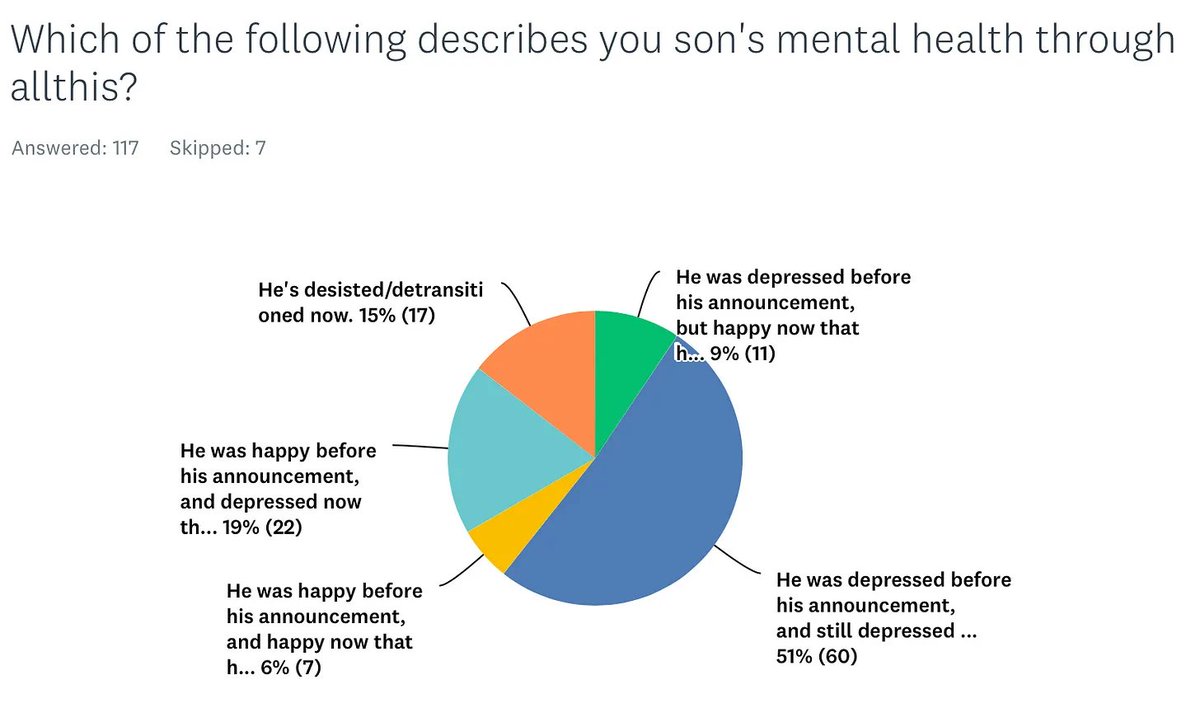New on PITT: Results of summer 2022 informal survey of parents of ROGD boys. Many interesting statistics. 🧵⤵️ pitt.substack.com/p/summer-of-20…
This survey was taken by 124 parents of boys who fit a Rapid-Onset Gender Dysphoria #ROGD profile-not the childhood-onset type of gender dysphoria. Let's look at some results!
The majority of these boys announced they were trans during puberty, with two waves corresponding to the age they enter high school (age 14) and college (age 19). 

Families with ROGD sons appear to have elevated rates of experience with death/chronic illness or a major upheaval. 

Rates of anxiety, depression, isolation and trauma for #ROGD boys were high before they announced. 

Rates of depression, anxiety & cutting INCREASED after sons announced, but social isolation decreased. Suicide ideation nearly doubled, but the rates of attempted suicide remained around 4%. Note: # respondents shifted between these two “before” and “after” questions. 

A large majority of parents believe that COVID played a role in creating or worsening their sons sense of gender dysphoria. 

For many of these boys, their “trans behavior” is not persistent or consistent nor evident outside the home. 

Around half of these boys are actively presenting as trans, around 30% are inconsistent, and around 10% are desisted. 

Around 30% of these boys are probably gay or bisexual. Around 18% are “Who knows? He’s really pre-sexual – it’s too early to know.” 

While this survey is not scientific, it does offer a number of insights into the emerging cohort of #ROGD boys.
• • •
Missing some Tweet in this thread? You can try to
force a refresh

















